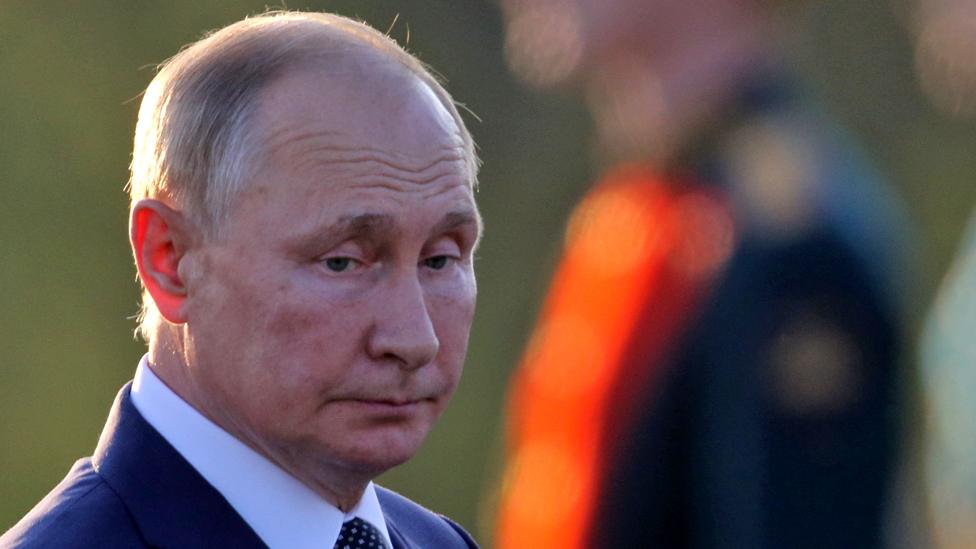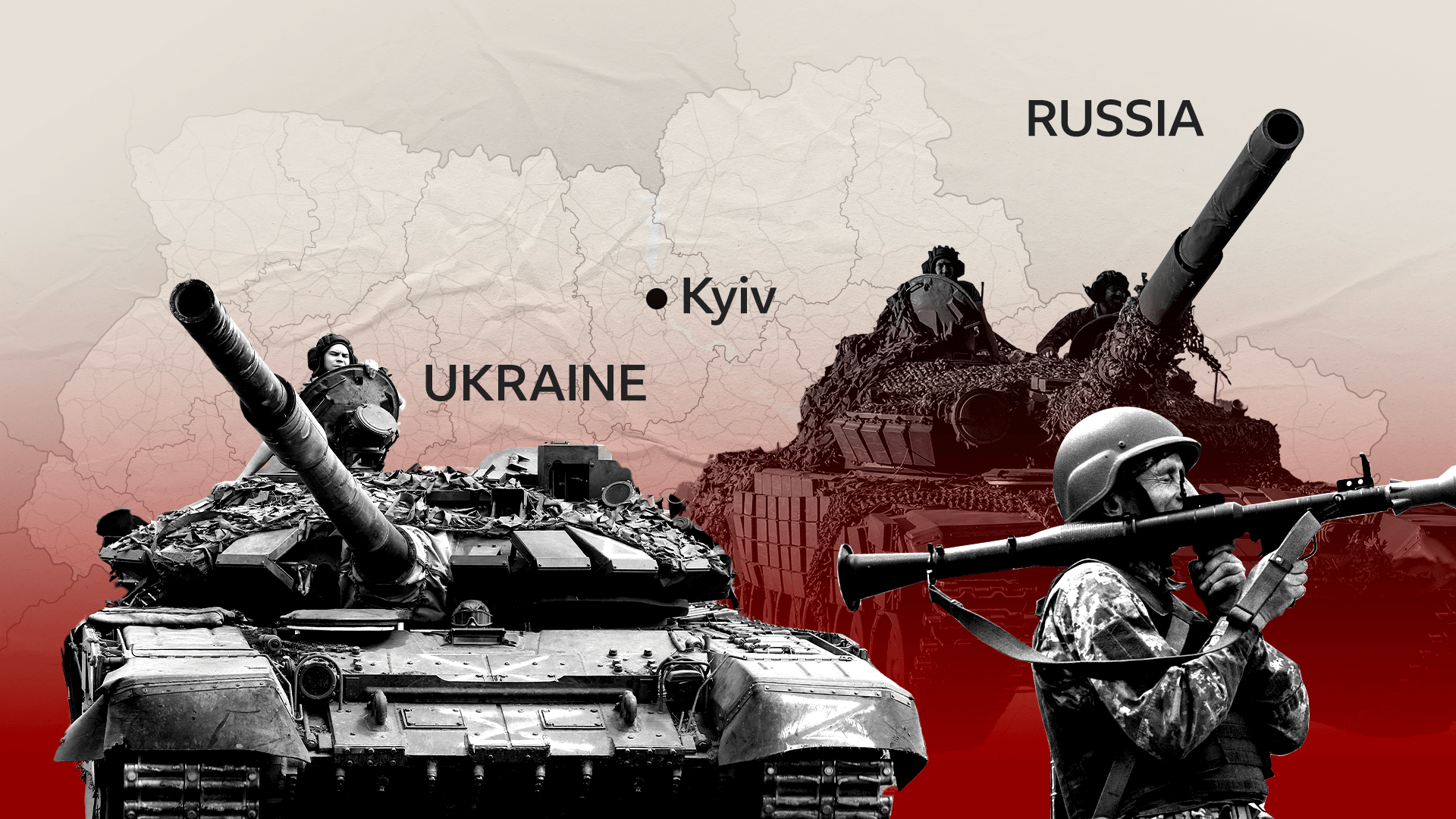A Kremlin adviser resigns and Ukrainian territory regained - Ukraine's latest war round-up
- Published
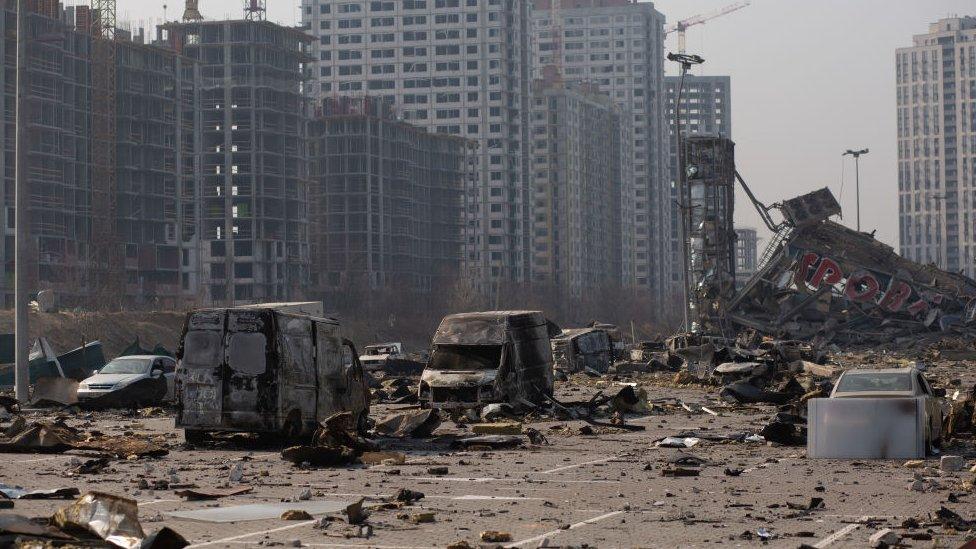
Russia is facing numerous setbacks as its invasion of Ukraine heads into a second month.
In the battlefield, Ukrainian forces have managed to push back Russian advances around the west of the capital, Kyiv.
And in the Kremlin itself, one of Russian President Vladimir Putin's top advisers has resigned.
Heavy shelling does, however, continue across numerous cities in Ukraine, including Kyiv.
The northern city of Chernihiv is also isolated after a key bridge connecting it to Kyiv was destroyed earlier today, regional authorities say.

Ukrainian fightback gains ground west of Kyiv
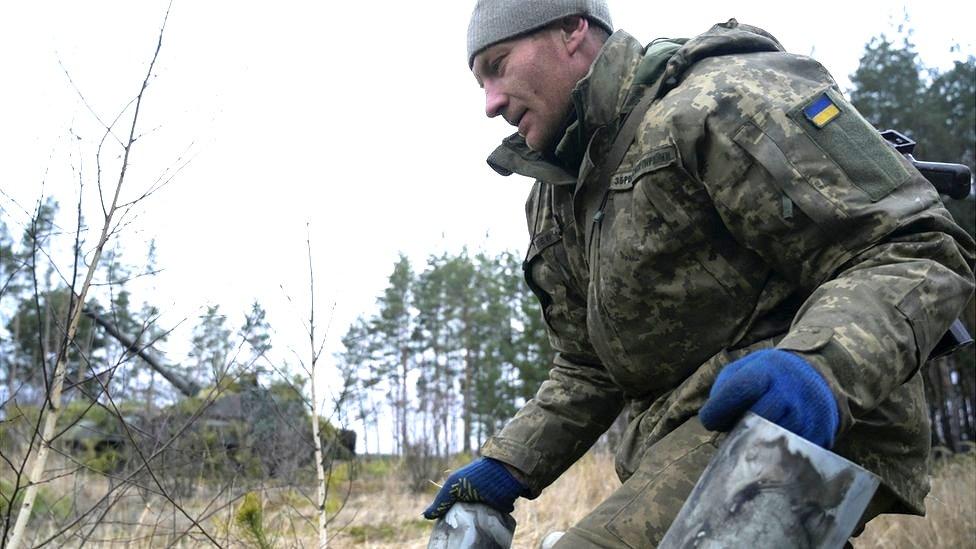
Makariv had previously fallen to Russian forces (pictured: a Ukrainian soldier near the town)
Local authorities in the town of Makariv, west of Kyiv, said Ukrainian flags were flying there once more.
A US defence spokesman said Ukrainians were also reversing momentum in some parts of the south.
A UK defence analyst told the BBC the fightback could force Moscow to change its tactics.
Read more here.


Veteran reformer - and Putin aide - quits
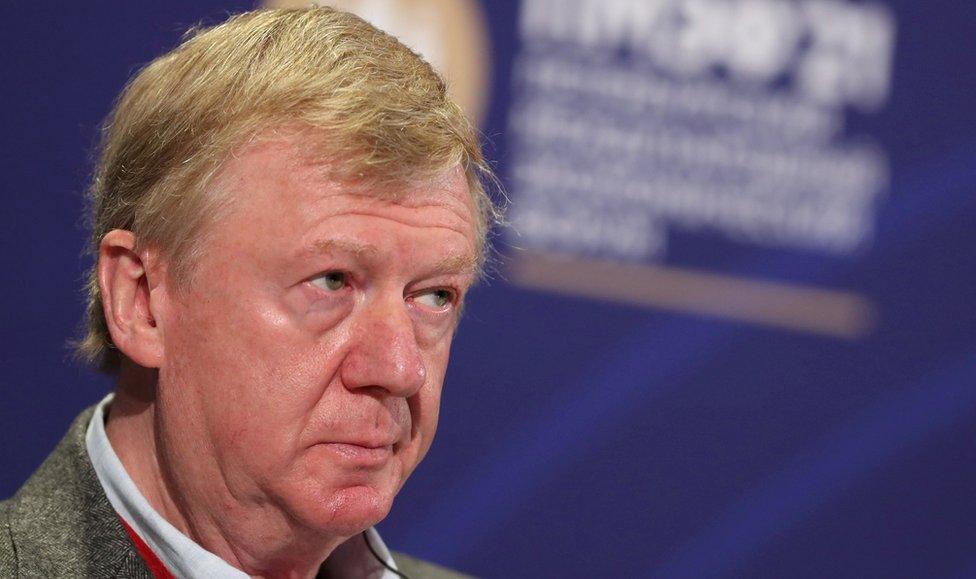
Mr Chubais was made a special representative to Mr Putin in December 2020
As well as the apparent stalling of Russia's advance on the ground, President Putin seems to have been dealt a blow from within the Kremlin itself.
One of his advisers, Anatoly Chubais, has stepped down from his role as an international envoy - the most senior official to resign since the launch of the invasion.
Russian reports said he was currently in Turkey with his wife.
How significant is Mr Chubais's resignation?
You can read more here.

Russian journalist killed in Kyiv shelling

Oksana Baulina had been reporting in Kyiv and Lviv before her death
Despite setbacks on the ground in some regions, Russia continues to shell the capital Kyiv.
In the midst of the shelling, a Russian journalist was killed.
Oksana Baulina had been reporting from Kyiv and the western city of Lviv for investigative website The Insider, the outlet said in a statement.
She died while filming damage in the Kyiv's Podil district, it added.
Baulina previously worked for Russian opposition figure Alexei Navalny's anti-corruption foundation, and had left Russia.

Nato to send more troops to eastern Europe
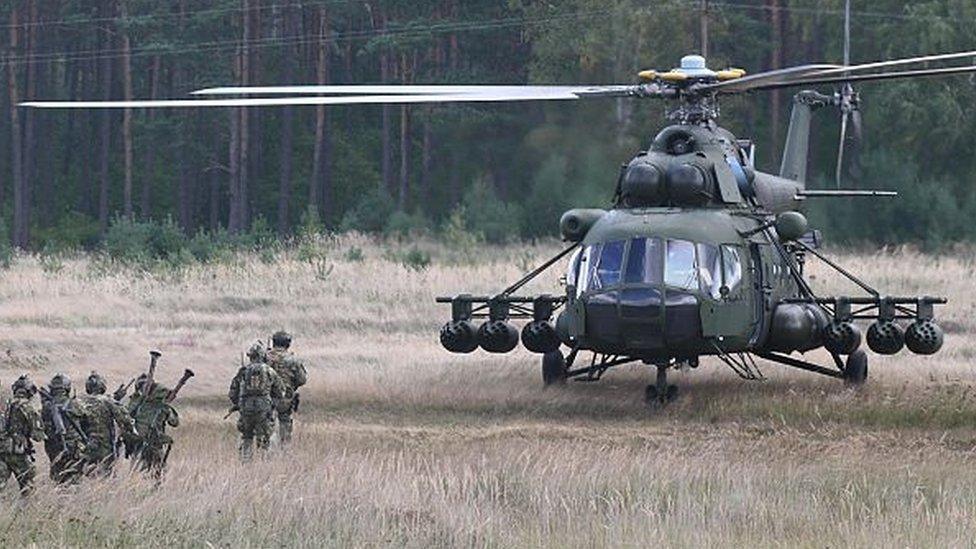
On the diplomatic front, Nato is set to approve big increases in the forces deployed on its eastern flank, its secretary-general Jens Stoltenberg has said.
Mr Stoltenberg was speaking at a news conference on the eve of an emergency summit on Russia's invasion of Ukraine.
He pledged more troops for Hungary, Slovakia, Bulgaria and Romania.
Nato will also agree more support for Ukraine, including greater protection against the use of chemical, biological and nuclear weapons.

Biden in Europe - what to expect?
Sticking with the Nato summit, US President Joe Biden is on his way to Brussels.
This is his third trip to Europe as US president - and in a real emergency.
The BBC's Anthony Zurcher looks at five of the most pressing concerns as Mr Biden meets European leaders and allies in the days ahead.
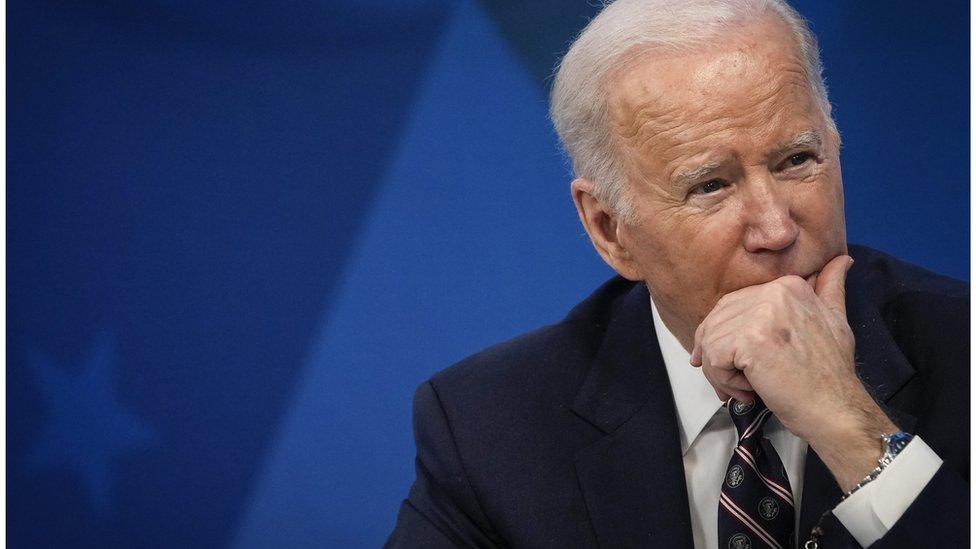

A month in Ukraine: All normal life is gone
Sarah Rainsford, Eastern European correspondent
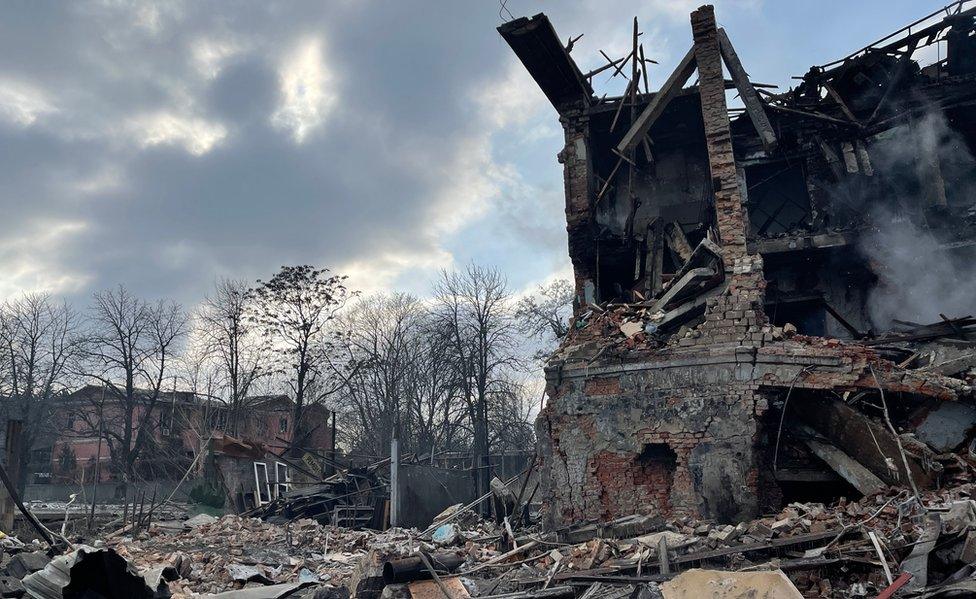
The remains of a shoe factory in Dnipro
I'm writing this in a city where there is no shelling. No Russian missiles slam into homes and there's no air raid siren with a wail that churns your stomach and saps your energy.
I wish Ukrainians could say the same. After a month reporting from their country, I have just left a nation under brutal attack and I have no idea when it will end.
It's not like I didn't know what Vladimir Putin was capable of. I reported on the annexation of Crimea in 2014 and then the war in eastern Ukraine that was whipped up by Russia's proxies and propaganda.
I also reported for many years from Russia itself, covering the murder and poisoning of opposition figures, wars in Chechnya and Georgia and horrors like the Beslan school siege, until I was expelled last summer as a "security threat".
Still, I arrived in the capital Kyiv last month convinced that Russia's president would not launch all-out war on Ukraine. The very idea seemed ludicrous, irrational, disastrous - and everyone I spoke to in both countries agreed.
Read Sarah's thoughts here.

Where have Ukraine's 10 million refugees gone?
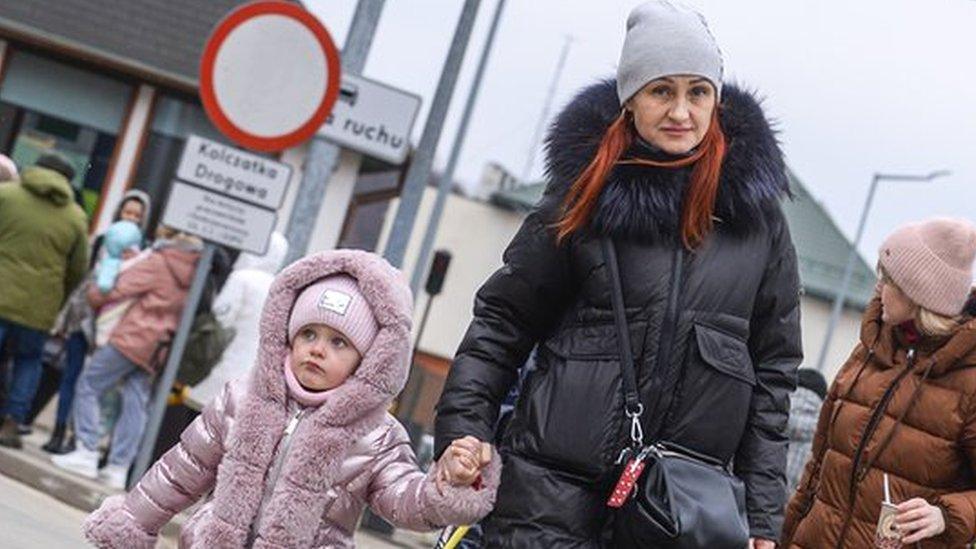
Most people who have fled the Ukraine conflict have crossed the border into Poland
And as uncertainty over this war persists, Ukraine's neighbours, as well as other countries further afield, are faced with the exodus of refugees.
According to the United Nations High Commissioner for Refugees, 10 million people have now fled their homes in Ukraine because of the Russian invasion.
As well as the 3.6 million who have left for neighbouring countries, another estimated 6.5 million people are thought to be displaced inside the war-torn country itself.
As people flee, many animals have also been abandoned across the country.
Photographer, Nick Tadd: "We're getting a lot of animals in with serious PTSD"
- Published23 February 2024
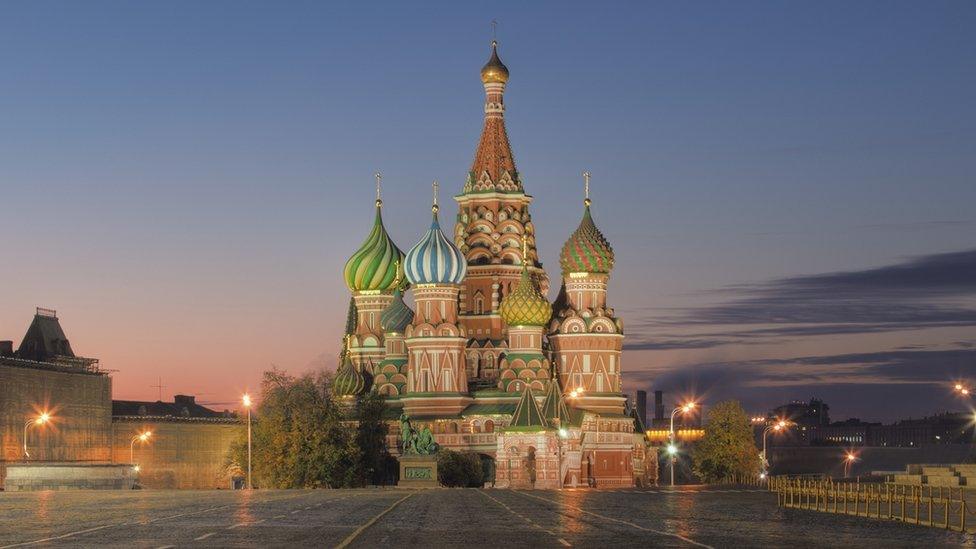
- Published20 March 2022
